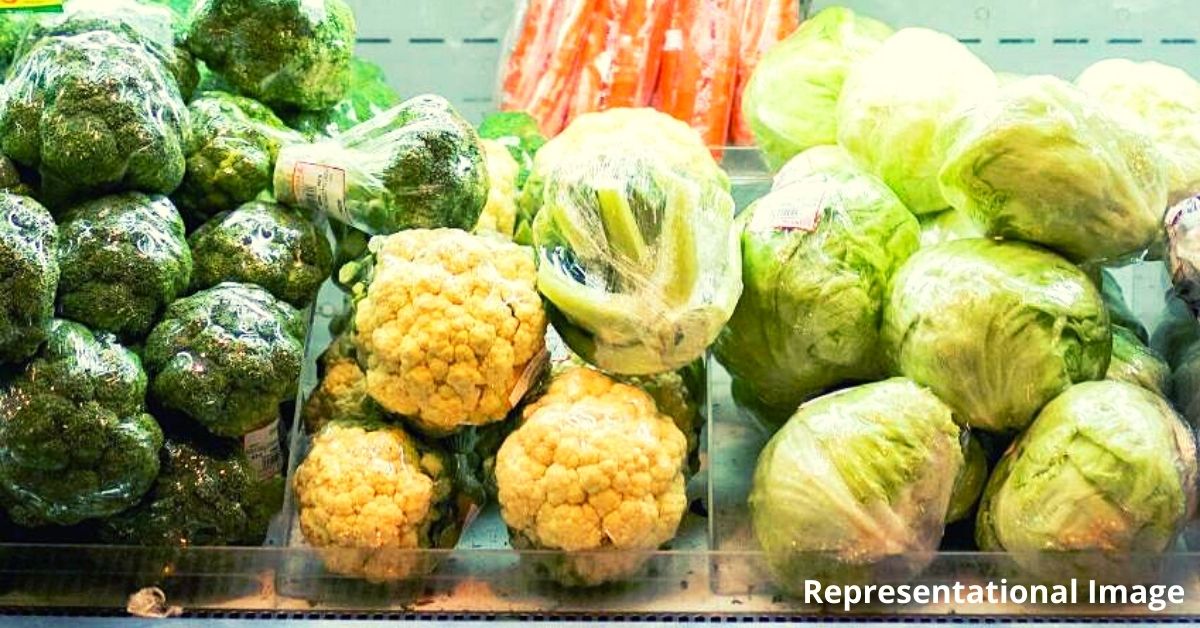IIT-M Develops Wrapping Material That Can Prevent Food Contamination & Plastic Waste
The material is both biodegradable and reduces bacterial colonies by 99.99 per cent when compared with an ordinary wrapper.

A potentially game-changing innovation has arrived which could simultaneously address the twin problem of food contamination (particularly in packaged food), and plastic waste.
Earlier this week, the Indian Institute of Technology-Madras (IIT-M), announced the development of their Sustainable Antimicrobial Wrapping Material, which they believe will prevent packaged food contamination by bacteria as well as reduce plastic waste. This biodegradable food wrapper reportedly has an in-built antibacterial compound and is safe for consumption.
This team from IIT-Madras is led by Professor Mukesh Doble of the Department of Biotechnology and Puja Kumari, a research scholar in the same department.
“Our idea is to design a food wrap that will address two major issues, namely solid waste and food contamination during storage due to bacterial growth. We have developed a biodegradable wrapping material with in-built antibacterial activity to prevent bacterial growth in stored food. The antibacterial compound should be safe for consumption as it is approved by the authorities and does not cause any toxicity,” says Professor Doble.

The wrapping material also degrades at various environmental conditions with the rate of degradation varying from 4 to 98 per cent in 21 days, adds Professor Doble.
The wrapping material degraded rapidly in moist conditions when compared to dry ones. Hence, they believe, this wrapper can play a major role in plastic waste reduction.
“We started work on the anti-bacterial food wrapper about five years ago, but it’s only in the last 1.5 years that we began addressing the biodegradable aspect of it. Food contamination is a major problem, particularly in processed food. However, there is another problem. Wrappers are mostly single-use polymers and felt we needed to address it,” he says.
As per the press release issued by IIT-Madras recently:
The films developed by IIT-M researchers were made with Polymeric blends containing starch, polyvinyl alcohol, cyclic beta glycans (CBG). The composition was optimised to achieve the best film with a smooth texture, flexibility, uniform thickness and good clarity. The polymers used are approved by the United States Food and Drug Administration (FDA).
The antibacterial agent selected is also approved by the food authority for consumption and includes eugenol, chlorogenic acid, betanin, curcumin and gallic acid, among others. These compounds are used regularly in Indian food and are known to possess antibacterial, antioxidant and many other beneficial bioactivities. The compound is either immobilised on the surface or coated or mixed with the polymer before preparation.
Their antibacterial coated polymer wrapper was tested on chicken, meat and paneer. Samples of these food items were placed in temperatures ranging from 4 to 30 degrees Celsius for 10 days and tested for the effect the coating had on reducing bacterial growth as compared to an uncoated wrapper.
“Our study found that 99.999 per cent reduction in the bacterial colonies was observed in food samples wrapped with our antibacterial wrap and stored at 30 degrees Celsius for 10 days when compared with a plain wrapper. This study also suggests that our antimicrobial wrapper can, to some extent, overcome the reduced availability of cold storage units. Paneer is known to have a very low shelf life (less than 7 days) and hence extending its shelf life is a major advantage,” noted Puja Kumari, the research scholar.
It’s true that bacterial growth is higher when stored at 30 degrees Celsius when compared to storage at 4 degrees Celsius. Thus, in a country like India, where the lack of cold storage is a major concern, the material developed by researchers at IIT-M could prove very useful in preventing food spoilage and wastage.
“India has a shortage of cold storage facilities. With higher temperature, you have more bacterial growth. If we can prevent bacterial growth at these higher temperatures, maybe we can address some of India’s shortcomings in cold storage. This can be an added advantage,” notes Professor Doble.
Another major concern is cost, and this was highlighted during his recent conversation with a wrapper manufacturer from Gujarat.
“We were talking to a manufacturer from Gujarat, who makes wrappers. He was talking about the cost. They’re looking at 50 paise per square feet of wrapping, whereas our material may cost about Rs 2 per square feet. We are trying to reduce the cost and thus seeking more funding so that we can work on it. Also, unless the government comes into the picture, managing costs will always be a challenge” he says.
At present, researchers are looking for funds to scale up the process and test their product with more food samples.
They also need to compare the mechanical properties as well as the cost of developed films with commercial products in the market. “If we scale up testing, we can address some of the cost concerns,” he adds.
(Edited by Vinayak Hegde)
Like this story? Or have something to share? Write to us: [email protected], or connect with us on Facebook and Twitter.

Similar Story

Startup’s Innovation Could Help Millions Get Access to Better Brain Health At Home
Ivory, a pioneering age-tech startup founded by Issac John and Rahul Krishnan, aims to redefine the ageing experience by focusing on better brain health, through neuroscience-backed assessments, interactive games, and personalised solutions.
Read more >
If you found our stories insightful, informative, or even just enjoyable, we invite you to consider making a voluntary payment to support the work we do at The Better India. Your contribution helps us continue producing quality content that educates, inspires, and drives positive change.
Choose one of the payment options below for your contribution-
By paying for the stories you value, you directly contribute to sustaining our efforts focused on making a difference in the world. Together, let's ensure that impactful stories continue to be told and shared, enriching lives and communities alike.
Thank you for your support. Here are some frequently asked questions you might find helpful to know why you are contributing?


This story made me
-
97
-
121
-
89
-
167












